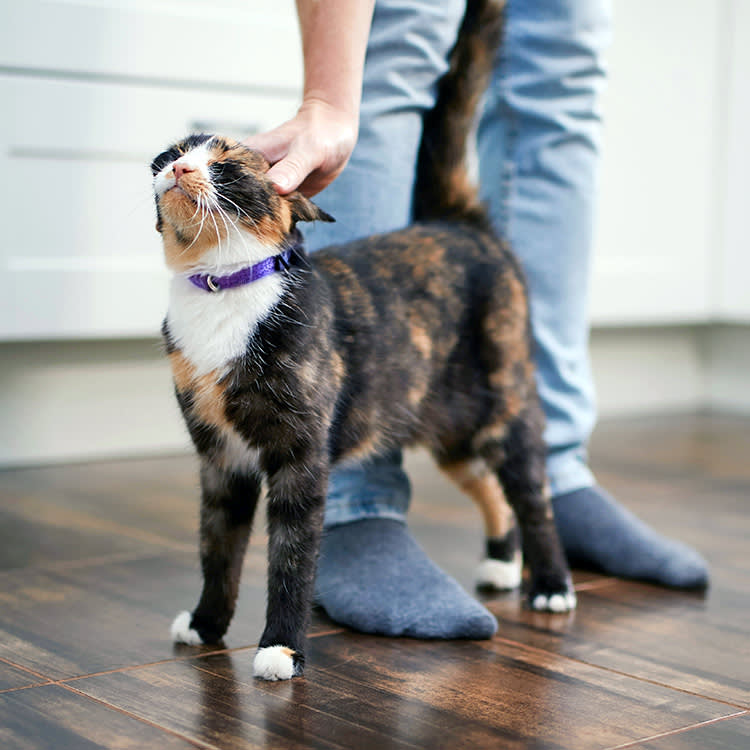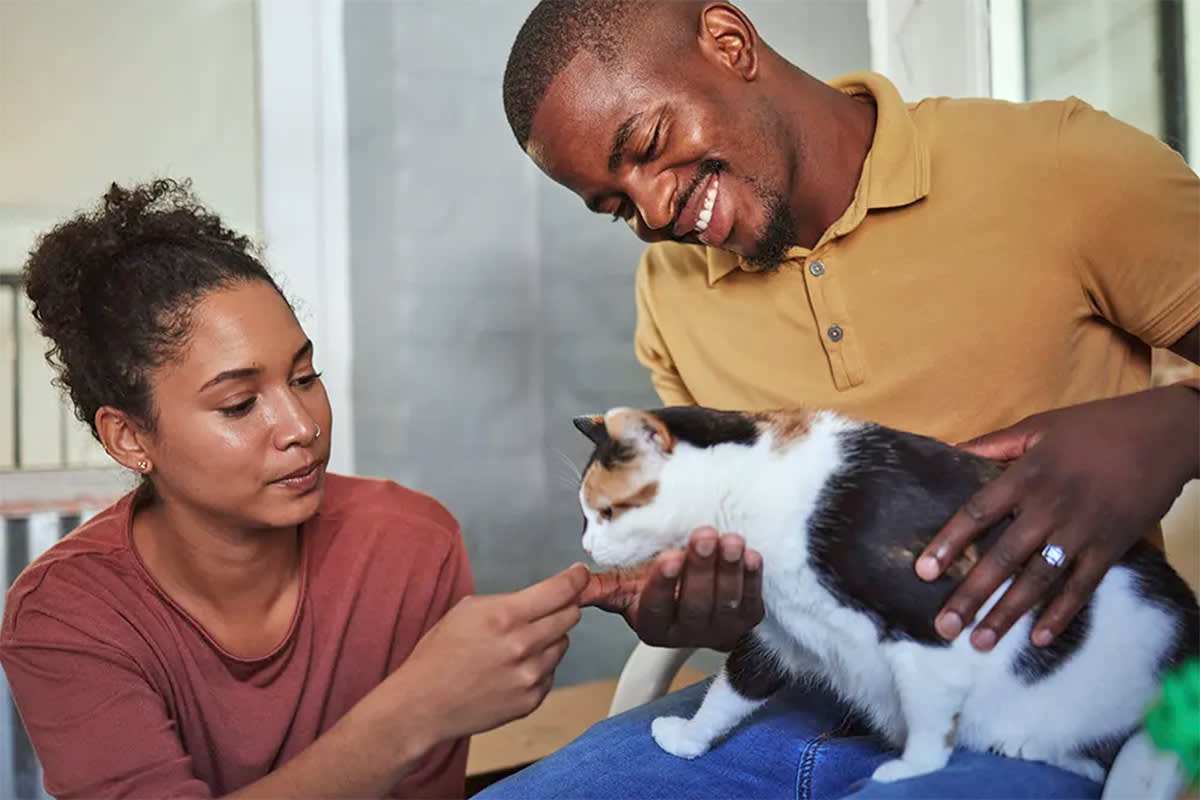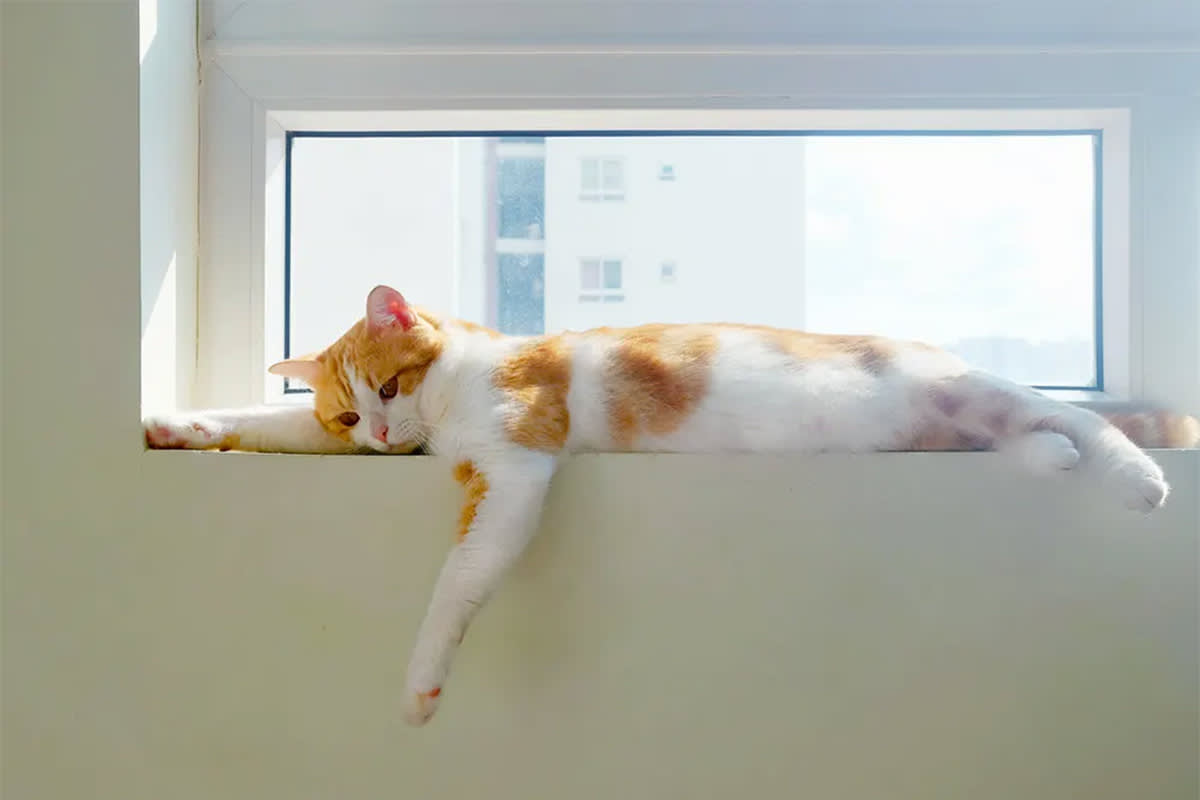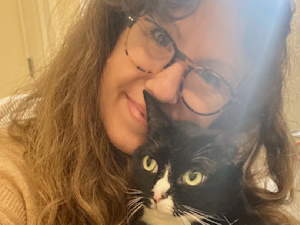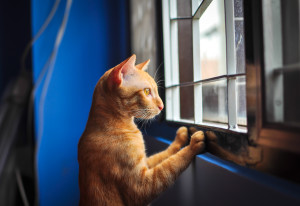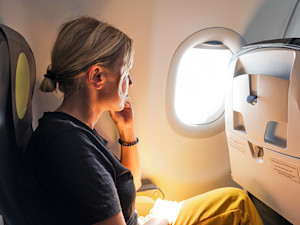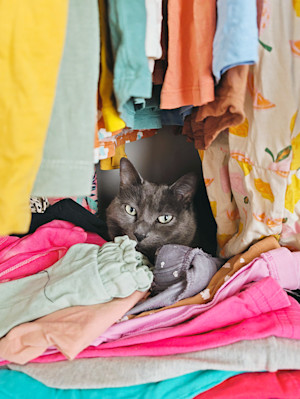9 Things to Do Before You Leave Your Cat at Home While You’re on Vacation
A little planning goes a long way.
The night before I leave for a vacation, I’m always a little anxious. Did I remember to pack a swimsuit for the hotel pool? Wait — does the hotel even have a pool? I triple-check my to-do list: Clean out the refrigerator, empty the trash, water the plants one last time. But when it comes to the cats, I’ve got my game plan in place well ahead of time. While they may be pretty low-maintenance, they’re also the loves of my life, and I want to make sure they have everything they need when I’m gone.
Whether it’s your first time traveling as a cat parent or you just need a refresher on the essentials, here’s a cheat sheet with expert tips to help your vacation go smoothly (for your cats, of course).
Choose your cat sitter with care.
Who do you trust to care for your babies? Dr. Julie Hunt, a veterinary consultant for Embrace Pet Insuranceopens in new tab, says a good cat sitter should monitor your cat’s appetite, water consumption, and litter box habits — not just put down a dish of food and scoop the poop.
They should be reliable and know what behavior is normalopens in new tab (and abnormal) for your cat. It’s a big responsibility, so choose wisely. And make sure they can come more than once a day. “Once daily is not enough to make sure they have clean water, fresh food, and a clean litter box,” says Dr. Geri Katz, a veterinary advisor at Pet Honestyopens in new tab.
How much do you spend on your pet per year?
Keep the routine predictable.
Cats are creatures of habit, and they thrive on a schedule. If yours is chaotic, try to keep things predictable for your cat in the days before you leave. “Even independent cats notice changes in routine,” says veterinarian Dr. Ezra J. Ameis, founder of Paw Priorityopens in new tab.
He recommends introducing any new toys, puzzle feeders, scratchers, or other accessories a week or two before you travel, and stabilizing your own routine to minimize disruption. If your sitter can’t come at the usual feeding times, adjust your schedule beforehand so your cat is already used to the change.
Introduce your cat sitter.
If you’re using a new cat sitter, try to arrange a meet-and-greet before you leave. This prepares your cat emotionally for your absence — a step many cat parents skip, Dr. Ameis says. But if your cat refuses to cooperate, don’t stress.
“Some cats will not come out for the sitter,” Dr. Katz says. “This is typical.” This is also a perfect time to show your sitter the lay of the land: litter box locations, favorite hiding spots, off-limits areas, doors and windows that need to be secured, and where you keep extra food, litter, medications, and the carrier (in case a need arises for transportation).
Make an emergency card for your cat.
Remember those emergency cards from elementary school? The ones you had to take home and have your parents fill out? (When I was in fourth grade, our class got to have a pizza party because we all handed them in on time.)
Your cat needs one, too. It should list the name and phone number of your veterinarian, plus nearby emergency hospitals in case urgent care is needed, Dr. Katz says. Discuss finances ahead of time and make arrangements so your cat sitter can authorize medical expenses if necessary.
Designate an emergency contact.
Your cat’s emergency card should also include someone you trust to make healthcare decisions if you can’t be reached, says Dr. Hunt. Choose someone who will be in town and easy to contact during your trip.
Stock up on food and litter.
This may seem obvious, but it’s easy to overlook in the hubbub of preparing for a trip. Make sure you have enough of every type of food your cat eats: dry, wet, treats, everything. Same with litter. Leave more than you think you’ll need — enough for a few extra days, in case your travel plans change.
Fill any prescriptions.
If your cat takes medication, refill prescriptions before you leave so they won’t miss a dose. Do they need pill pockets, measuring spoons, pill cutters, or other supplies? Give your sitter everything they’ll need, along with clear instructions for how to administer the meds (in food or by mouth?) and what to do if your cat refuses it, spits it out, or throws it up.
If you’re worried your cat might be overly anxious while you’re away, Dr. Katz recommends asking your veterinarian about anti-anxiety medication. “Remember that stress can lead to illness, and we are trying to prevent that from happening,” she says.
Take a photo.
It might sound silly — your camera roll is probably 70 percent cat photos anyway — but Dr. Ameis says a recent, high-quality photo is “incredibly helpful” in case your cat gets outside or goes missing. Hopefully it won’t be needed, but honestly, who doesn’t want an excuse for a mini cat photo shoot?
Write a detailed note.
Last but definitely not least, write a thorough note for your cat sitter. Include everything they might need to know, Dr. Ameis says. “One of the biggest things people overlook is how detail-oriented cats can be. It helps to leave written instructions that go beyond ‘one scoop twice a day.’”
Give your sitter a heads-up about signs of stress to watch for, and describe your cat’s normal appetite, personality, and litter box habits. Personally, I like to supplement this with plenty of Post-It notes around the apartment to serve as reminders. (I appreciate these when I’m the cat sitter, too!)
